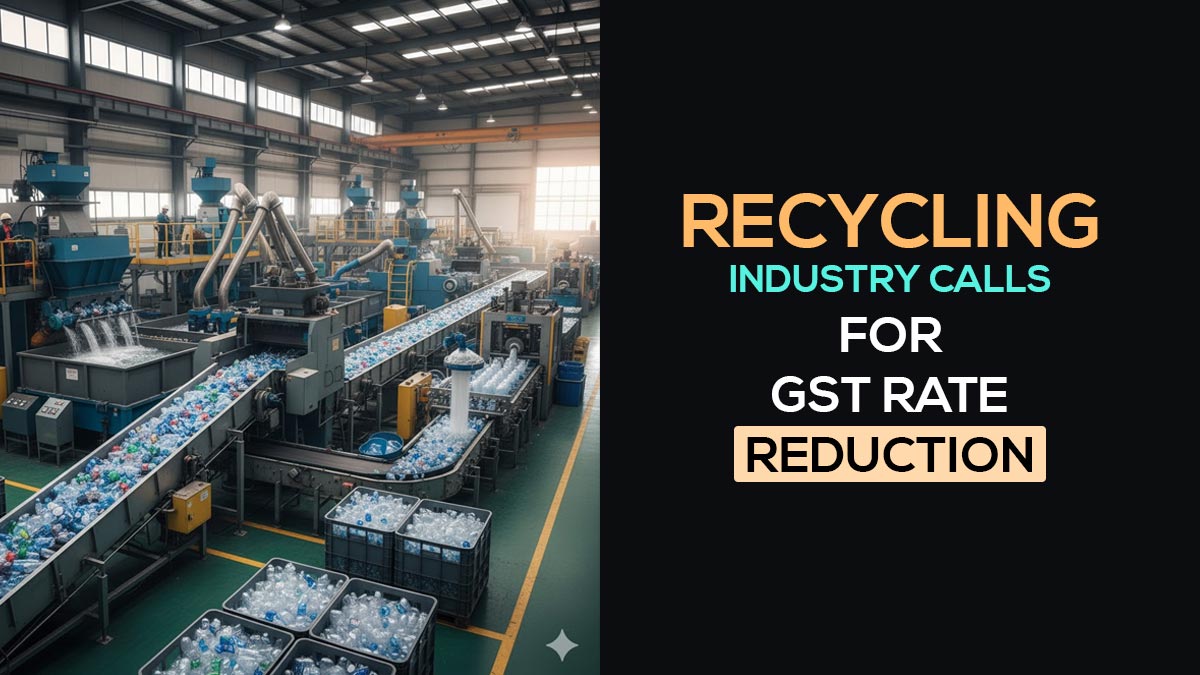
The industry of recycling requested the government to reduce the GST to Nil from 18% which has been imposed on plastic bottles.
India’s Extended Producer Responsibility policies should be tailored to fit the country’s unique context, especially considering the essential role of the informal economy in maintaining high recycling rates.
The ecosystem integration must be there, and the adoption of digital tools like IoT, AI, and robotic sorting to improve efficiency and traceability. Bharat Recycling Show 2025 and Plastics Recycling Show India, between November 13-15 in Mumbai, have been announced.
Also Read: GST Rate on Sale of Scrap Materials with HSN Code
The 18% GST rate is a barrier to raw materials such as bottles. If circularity is said to be the national imperative, then taxation on recycled materials must be reduced, if not carried to zero, to make a good and sustainable enabling environment.
The industry leaders discussed the unique challenges facing India’s journey to circularity, particularly in relation to plastics, during a conversation titled “Unlocking Circular Value: Regulatory and Market Trends in Recycling.”
The levy of high GST and fragmented compliance remained an important problem that the summit aimed to address via fostering dialogue among policymakers and industry players.
Apart from supporting India to fulfil its Nationally Determined Contributions (NDC), copper recycling is very important for securing metals for alternative energy, easing the import burden, and reducing carbon emissions.
If this unrecorded sector is included, India’s economy is expected to surge to over $5 trillion, up from the current $4.3 trillion.
To realise the country’s economic potential, integrating the informal recycling industry into the formal system and providing education on ESG practices are essential.









